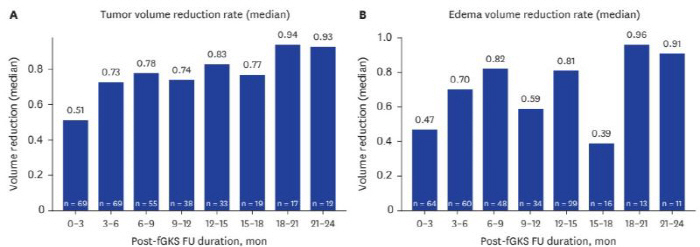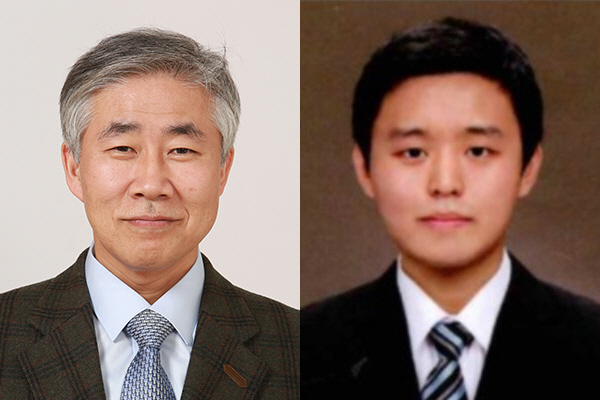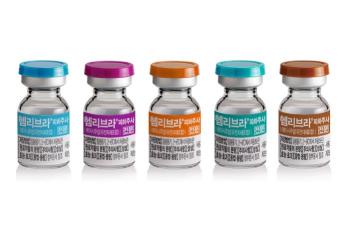Large epilepsy cancer, fractional gamma knife radiation surgery effective...80% reduction in tumor and edema volume
Sep 03, 2025
|
Korean researchers have demonstrated the first-line treatment effectiveness of 'fraction gamma knife radiation surgery', which can safely and effectively treat large-scale epilepsy cancer. The treatment, which irradiates radiation in small amounts several times, can reduce tumor size by 80% in nine months and stabilize neurological symptoms in 87% of patients, which is expected to be a useful alternative for patients who have difficulty getting craniotomy due to underlying diseases.
Professor Baek Sun-ha and Myung Ho-sung's team of neurosurgery at Seoul National University Hospital announced on the 3rd after retrospectively analyzing the effectiveness and safety of this surgery method on 93 people who underwent fractional gamma knife radiation surgery as the first treatment after diagnosis of large brain metastasis cancer.
Brain metastasis cancer is a tumor caused by cancer cells in other organs spreading to the brain. If the size is small, radiation surgery is the first-line treatment, but craniotomy is recommended first because large epilepsy cancer requires faster lowering of brain pressure by reducing the volume of the tumor.
When craniotomy is difficult, 'Fraction Radiosurgery' is attracting attention as an alternative. It has been reported that it has less risk of side effects and effectively suppresses tumor growth than irradiation with high doses of radiation at once. However, the primary therapeutic effect of fractional radiography in large pre-eclampsia has not yet been definitively elucidated, especially gamma-knife-based treatments that only scrutinize lesions with high-dose gamma rays has been rare in our study.
According to the research team's follow-up of recurrence, metastasis, and death after fractional gamma knife radiation surgery, the total survival period was 15.2 months, similar to the previously reported craniotomy survival period (8-18 months). Progression-free survival without recurrence and metastasis was median 8.2 months.
In addition, the research team evaluated tumor and swelling volume, neurological symptoms, and radiation toxicity at 3-month intervals for 2 years.
As a result, 8 out of 10 tumors had a reduction in volume by more than half, and the time it took for the tumor to have a maximum reduction in volume was median 3.3 months. The volume of tumors and edema decreased continuously from 6 to 9 months after treatment, reducing by about 80%. Subsequently, there was a temporary volume fluctuation until 18 months, but it remained stable from 18 months. This result suggests that fractional gamma knife radiosurgery can alleviate neurological symptoms by reducing not only tumors but also peripheral edema. In fact, 87.1% of all patients had stabilized or improved neurological symptoms within 6 months after surgery.
In terms of safety, necrosis due to radiation toxicity was observed in 5.4% of patients, but there were no symptoms that required hospitalization.
In other words, fractional gamma knife radiation surgery is a treatment that can achieve effective neurological improvement while avoiding complications from surgery, the research team explained.
Professor Baek Sun-ha (neurosurgery) said, "This study is significant because it demonstrates the effectiveness and safety of fractional gamma knife radiation surgery in large-scale epilepsy cancer. Fractional gamma knife radiation surgery could be recommended as the first-line treatment to replace surgical resection in the treatment of large-scale epilepsy cancer."
Meanwhile, the study was published in the latest issue of 'Journal of Korean Medical Science'.
|
This article was translated by Naver AI translator.















